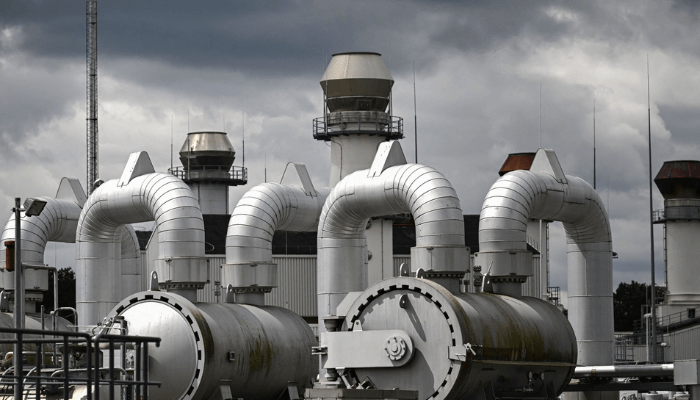Russia and China’s landmark agreement to build the long-delayed Power of Siberia 2 gas pipeline is resonating well beyond Eurasia, with potential ripple effects for global energy markets and Nigeria’s fragile yet ambitious gas sector.
The pipeline, designed to transit gas reserves in Russia’s West Siberia to northern China via eastern Mongolia, will enable the supply of 50 billion cubic meters (bcm) of gas per year, according to Russia’s Interfax news agency.
Supplies under the new Power of Siberia 2 agreement will run for 30 years.
For Moscow, the agreement represents a decisive pivot eastward following the collapse of its gas exports to Europe after a full-scale invasion of Ukraine in 2022. For Beijing, it secures a long-term, stable, and likely discounted supply of natural gas to strengthen its industrial growth and transition away from coal.
For Africa’s top gas holders such as Nigeria, however, the deal adds a fresh layer of competition to an already crowded global liquefied natural gas (LNG) market.
Read also: PIA proposed amendment (Mutilation): Taking Nigeria’s Oil and Gas industry back to the ‘Stone Age’
Moscow’s pivot to Beijing
The European Union’s commitment to end Russian fossil fuel imports by 2027 and Washington’s embargo on Russian energy from 2022 forced Moscow to accelerate efforts to deepen energy ties with Asia.
While Russia has long courted Beijing with the idea of a second major pipeline, after the first Power of Siberia went live in 2019. China had long resisted signing binding commitments, leveraging its bargaining power over a sanction-stricken Kremlin.
Last week’s breakthrough reflects both Russia’s desperation to secure new buyers for the 120 billion cubic metres of gas it once piped to Europe annually, and China’s calculation that now is the time to extract favourable terms.
Alexei Miller, chief executive of Russia’s state-owned energy giant Gazprom, told Russian news agencies that the price of the gas via the new pipeline will be agreed on separately.
The two countries also signed a separate agreement for Gazprom to boost gas supplies to China through the existing Power of Siberia pipeline.
For Nigeria, which is banking on expanded LNG exports to Europe and Asia to revive its faltering economy, the development is double-edged. On the one hand, Europe’s retreat from Russian energy has created short-term opportunities for Nigerian gas.
On the other hand, China’s pact with Russia threatens to limit Abuja’s long-term ability to court Beijing as a reliable LNG buyer.
Nigeria’s LNG gamble
Nigeria holds Africa’s largest proven gas reserves, more than 200 trillion cubic feet, yet has historically struggled to translate this into economic transformation.
The flagship Nigeria LNG project on Bonny Island currently produces 22 million tonnes per annum (mtpa), with a long-delayed Train 7 expansion expected to add another 8 mtpa.
Policy makers in Abuja have long viewed China as a natural partner for absorbing new LNG volumes, especially as Beijing increases gas consumption to meet climate commitments.
The Nigeria-China trade relationship, already worth $22.6 billion in 2023, has featured heavy Chinese lending to infrastructure and energy projects.
But the Power of Siberia 2 pipeline changes the dynamics. Analysts suggest China may prioritise pipeline gas from Russia, which is typically cheaper than LNG imports, for its northern industrial hubs, reducing appetite for seaborne cargoes from Africa.
“This pipeline creates a displacement effect,” said Ifeoma Okonkwo, a senior energy analyst with one the Big Four consulting firms. “Russia is offering long-term, heavily discounted gas to China. That inevitably squeezes out higher-cost LNG suppliers like Nigeria, especially for base-load contracts.”
Read also: FG eyes 10 billion SCF gas production in 5 years
A tougher LNG market
The Russian-Chinese gas axis lands at a time when the global LNG market is bracing for a supply surge. New projects in Qatar, the US, and Mozambique are set to bring tens of millions of tonnes of additional supply online by the late 2020s.
Nigeria, still grappling with underinvestment, vandalism of pipelines, and policy inconsistencies, risks being left behind. Its LNG exports have stagnated in recent years, even as rivals scale up.
The Train 7 expansion has suffered cost overruns and delays, while domestic security issues—such as oil theft in the Niger Delta, continue to undermine investor confidence.
“By the time Nigeria gets its act together on LNG, the market may have been oversupplied and dominated by cheaper sources,” said Okonkwo. “The Russia-China pipeline deal only sharpens that challenge.”
Geopolitics of gas and Nigeria’s dilemma
The deal also underscores the deepening energy geopolitics shaping Nigeria’s options. Since 2022, European buyers have ramped up LNG imports from Nigeria to offset lost Russian supply. Italy’s ENI, Spain’s Naturgy, and France’s TotalEnergies have all increased spot purchases.
But Europe’s energy transition agenda, anchored in the Green Deal, aims to reduce fossil fuel consumption in the long run. Nigeria thus faces a narrowing window: it must capture revenues from gas exports while they remain viable, even as buyers diversify.
China, once seen as the fallback market for African LNG, now looks increasingly aligned with Russia. This reduces Abuja’s leverage in negotiating long-term supply contracts with Beijing.
“It’s a strategic setback for Nigeria,” said Aisha Mohammed, an energy analyst at the Lagos-based Centre for Development Studies. “China will continue to buy LNG, but it will do so selectively. Having secured 50 bcm annually from Russia, Beijing will be less inclined to commit to expensive African supply.”
Opportunity in Europe, if Nigeria can deliver
Yet all is not lost. Europe’s disengagement from Russia still provides opportunities for Nigeria – if it can overcome structural bottlenecks. The EU imported more LNG than ever in 2023, with the US, Qatar, and Nigeria among the main beneficiaries.
Abuja has also positioned itself as a champion of gas monetisation through its ‘Decade of Gas’ initiative. The Petroleum Industry Act (PIA) of 2021 created incentives for investment, though implementation has been slow.
Analysts argue that Nigeria’s best bet is to double down on supplying Europe in the medium term while building domestic gas infrastructure for power generation and industry. Projects like the Ajaokuta-Kaduna-Kano (AKK) pipeline, though delayed, could unlock domestic utilisation, reducing dependence on fickle export markets.
“Europe still needs Nigeria’s LNG, especially over the next five to seven years,” said Mohammed. “The challenge is whether Nigeria can reliably deliver volumes without disruptions.”
Read also: TotalEnergies continues African oil & gas expansion with new offshore acreage in Nigeria
Lessons from Moscow’s pivot
For Nigeria, Russia’s pivot to China offers cautionary lessons. Heavy reliance on a single market exposes vulnerabilities when geopolitics shifts. Just as Moscow was blindsided by Europe’s break, Nigeria could face similar risks if it bets too heavily on either Europe or Asia.
Diversification, both geographically and in terms of domestic utilisation, may be Nigeria’s best defence. Expanding LNG trade with emerging Asian buyers such as India, Pakistan, and Bangladesh could provide balance.
Simultaneously, investing in domestic petrochemicals, fertilisers, and power plants could create captive demand for Nigerian gas at home.
“Gas is not just for export dollars; it is for industrialisation,” Mohammed stressed. “If Nigeria keeps chasing after China or Europe while neglecting its domestic market, it risks repeating the mistakes of oil dependency.”
A shifting global order
Beyond market implications, the Power of Siberia 2 agreement reflects broader shifts in global energy geopolitics that Nigeria must navigate carefully. The Russia-China bloc is presenting itself as the nucleus of a new multipolar order, challenging the West’s dominance in energy trade.
Nigeria, which has historically balanced ties between Western investors and Asian partners, may find itself pressured to choose sides. With the US and EU prioritising renewables and China tilting toward Russian pipeline gas, Abuja’s room for manoeuvre could narrow.
“This is about more than gas—it’s about power,” said a senior executive who requested anonymity. “Nigeria must position itself smartly, aligning with partners that can support both its export ambitions and its industrialisation goals.”
The Power of Siberia 2 pipeline is still years away from completion, and much could change before first gas flows. Russia and China have yet to finalise pricing, financing, and construction timelines. Past Gazprom projects suggest delays are likely.
Read also: NNPC targets $60bn investment to boost gas, refining capacity by 2030
Christopher Granville, managing director at TS Lombard, said that while the significance of the Power of Siberia 2 gas pipeline agreement is ‘somewhat limited,’ it should not be dismissed as a ‘nothing burger’ either.
“For the past decade, Gazprom has been pushing China to give the go-ahead for Power of Siberia-2, only to be met – until now – with positive but non-committal noises. So, today’s signing of a MOU is a step forward for Gazprom,” Granville told CNBC by email.
“The fact that this has happened against the background of the fraught Ukraine war endgame is a clear enough signal of China’s steady strategic backing for Russia as the lynchpin of the new multipolar order to which both these core Eurasian powers aspire,” Granville said.









